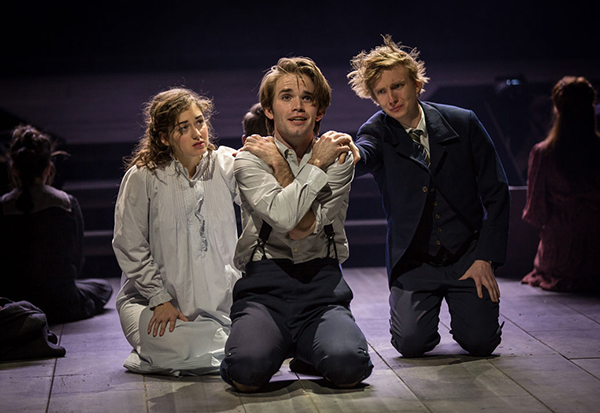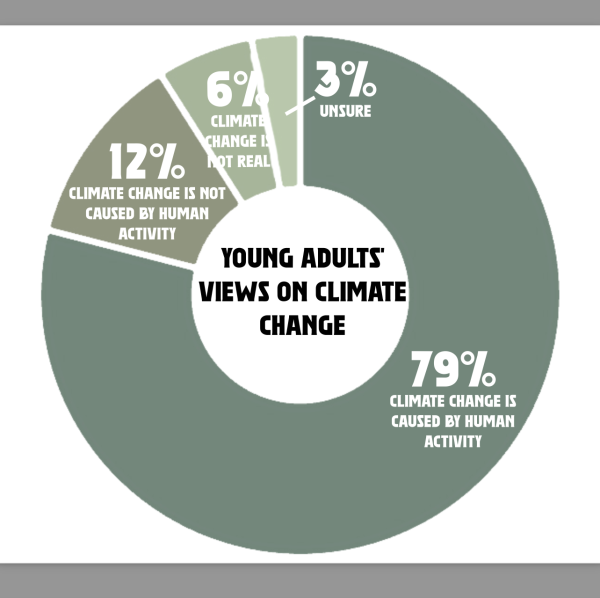Spring Awakening pushes boundaries through moving storyline, striking arrangements

Photo courtesy of the Marriott Theatre Lincolnshire
TROUBLED TUNES: Wendla (Anna Blanchard, left), Melchior (Patrick Rooney, center) and Moritz (Ben Barker, right) perform the last song, “The Song of Purple Summer”.
March 11, 2016
When information is made uncomfortable or unspeakable, or is hidden or silenced by parents afraid of what it could mean for their children, does that information not explode?
Steven Sater, creator of Spring Awakening, a rock musical that just showed at the Marriott Theatre Lincolnshire, is principally concerned with this type of explosion, and its shattering aftermath.
In this brilliant and necessary musical, information—about sexual and mental health, the mess and trial of being a teenager—is not dangerous. Rather, it is lifesaving.
In Sater’s musical, the danger is not in providing information to teenagers, but in restricting their access, or worse, in being too fearful to speak directly to teenagers about sex, about mental health, and about the resources available for teenagers in need.
The musical begins in nineteenth-century Germany, and focuses on the intersecting lives of teenagers attempting to navigate the difficulties of adolescence in an intensely constricted world. The protagonist, Wendla (Anna Blanchard) is a young teenager who expresses her confusion about the world she is entering in the haunting song “Mama Who Bore Me.” With a mother unable or unwilling to explain to her the realities of romantic relationships, she feels she is left unprepared for the adult world and “bad” in her growing sexuality.
The play then moves to a male perspective on adolescence, focusing on Melchior (Patrick Rooney, impassioned) and Moritz (Ben Barker), best friends and rebellious young men disillusioned with the inability to be heard in their society. These intersecting relationships—Wendla and Melchior’s romance, Moritz’s struggle with his father—form the center of the play and ground the musical in human relationships.
Be warned, there is a lot of adult content (Sater throws in the kitchen sink), but it is imperative that teenagers attend this musical anyway, because these are issues with which we are already grappling. By telling the stories of these young people, Sater argues that you have to expose teenagers, educate us and communicate with us. You cannot shelter us from the reality of the world, because, in Sater’s words in that first song, we are left with “no way to handle things.”
This Marriott production hews closely to the Broadway production in choreography and presentation of the music. The songs are truly brilliant, as the score is a combination of rock and musical theater. The arrangements are striking, with simple, stark, and direct lyrics.
Sater has said in the past that his goal for the lyrics was not to forward the plot, but to capture emotions: what it feels like to be a teenager, how language and music can only try to reach at the volatile feelings of adolescence. It is adults’ responsibility, Sater asserts, to teach and ready their children for the world we live in. Teenagers can take responsibility for our actions only if we understand what we are doing. And with hope, with the information necessary to make choices, we’ll choose right.
And so I believe that Spring Awakening should be required viewing for parents and teenagers. Spring Awakening reminds us that we are not alone, and reminds parents and guardians that adolescence can be difficult, but trusted adult support can make the passage much easier. I know the musical has provoked a conversation with my own parents, so to teenagers: go with an adult who is important to you.














